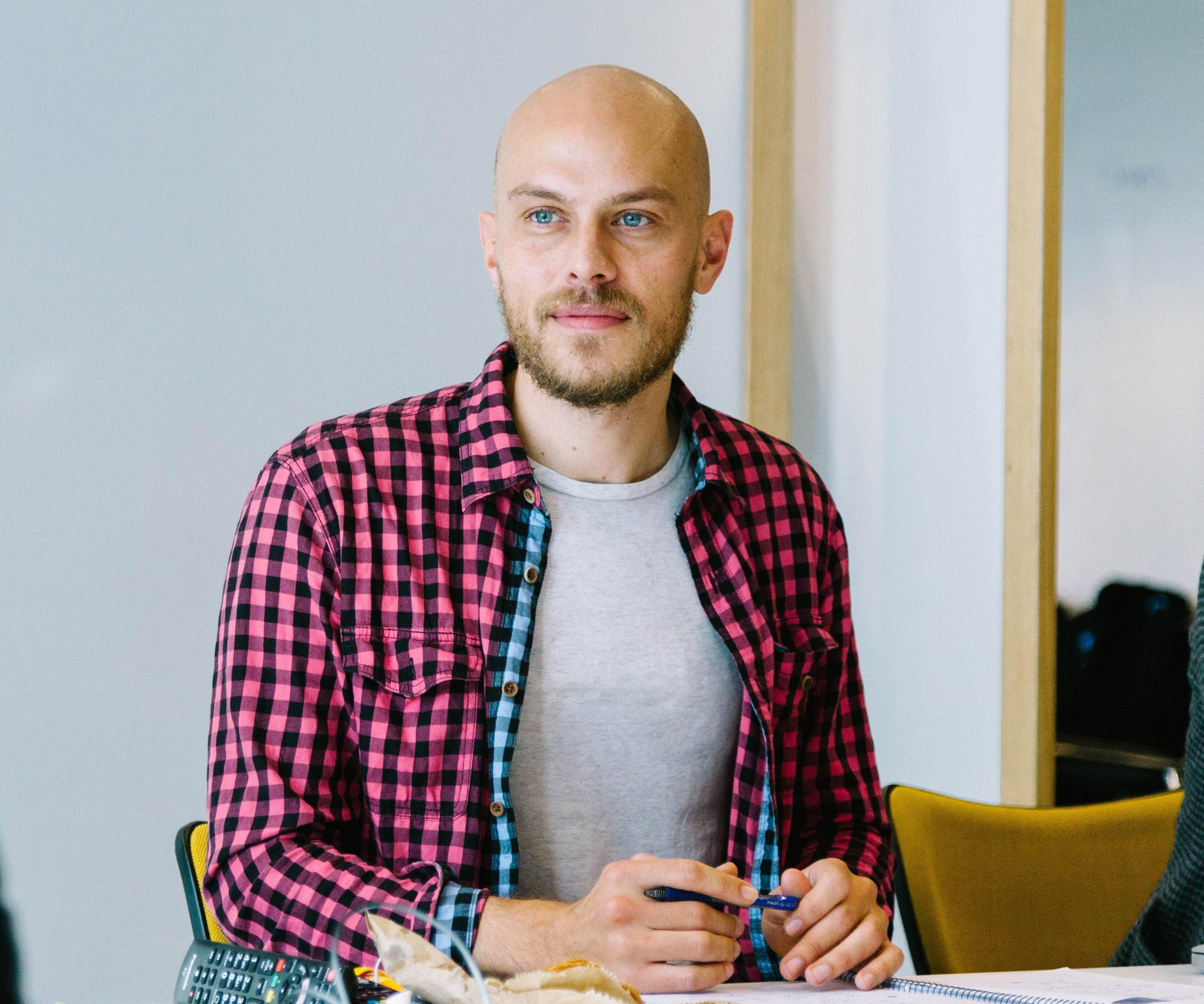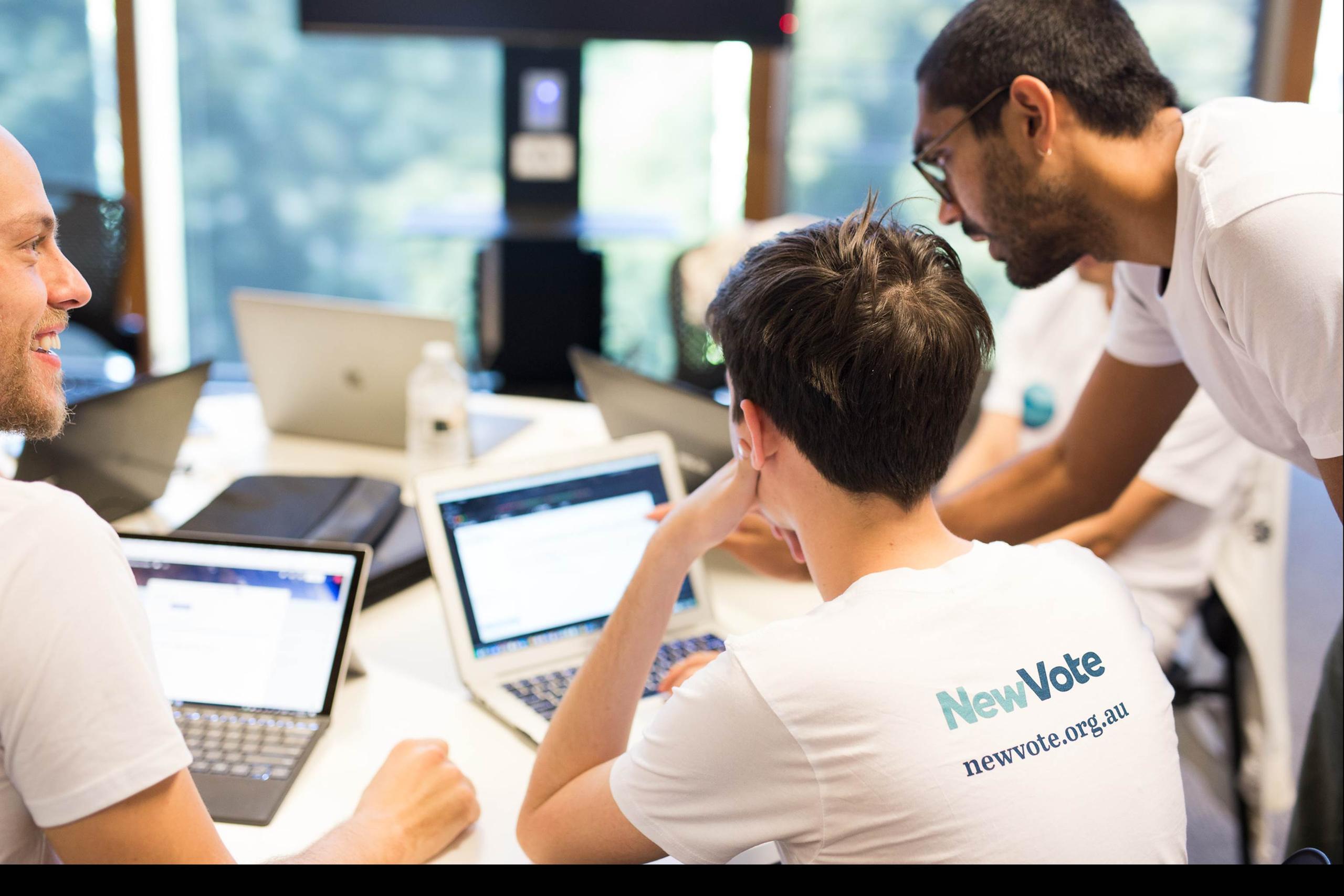Same-sex vote in Australia: dawn for direct democratic action

Australia is set to become the second nation in the world to hold a popular vote on same-sex marriage this November. The High Court paved the way for a voluntary postal survey, following opposition by the Senate against a compulsory nationwide vote on the issue.
Modern democracy is at a crossroads. At a time when the world must address unprecedented economic, environmental and social challenges, we are failing to draw upon our greatest natural resource: the people. It is no different here in the country that I call home.
At no time in Australia’s recorded history has there been such low levels of trust in government and the media, such low voter turnout at elections or such low faith in democracy as the best form of government.
I believe in Australia, I believe in democracy, and I believe that it’s a good thing that Australians are having their say in a popular vote this spring (autumn in the Northern hemisphere).

I’m a co-founder of NewVote, a nonpartisan nonprofit start-up. We’re working to address the disconnect between the public, politicians and the government decision-making process. Our mission is to break down barriers that block everyday people from engaging easily and directly with their representatives.
Digital NewVote platform
We’re creating a secure digital participation platform that focuses on policy, not political parties.
The platform uses advanced direct democracy elements such as publicly editable explanations (wikis) of political issues and their potential solutions, the right for anyone to suggest issues and solutions, crowd moderation as a way to filter out trolling and offensive content and real time voting on the user’s level of support for the solution and its overall importance to them.
This text is part of #DearDemocracy, a platform on direct democracy issues, by swissinfo.ch.
The platform also uses deliberative processes such as the facilitation of online and real life discussion forums, the aggregation of information from third party sources centred around specific solutions, endorsements for solutions from key stakeholder organisations and in-person citizen juries for the most popular solutions to provide key findings, arguments for and arguments against.
Credible and innovative
In this way, the platform is a crowdsourcer of credible and innovative solutions to political issues, a real time voting mechanism without a closing date and a source of balanced information to encourage informed voting.
Users are verified by government documents but anonymous to other users on the platform. Users are free to change their mind and their vote at any time, or to delegate their vote to someone that they trust who knows more about a particular issue.

NewVote then steps out of the virtual world and into the real world in order to advocate and campaign for those solutions which have received majority support.
Our theory is that mass participation in a real time voting mechanism of public sentiment and our advocacy of those results will put pressure on politicians to better reflect the will of the people on specific policies and address long standing reforms that the political system has, so far, failed to do.
In short, the platform will inspire innovative solutions, encourage better decision-making and lead to a more representative, responsive and accountable government.
Story of my life
The story of NewVote is the story of my life. I have witnessed massive advances in technology whilst democratic innovation has stalled or shuffled slowly forward.
I was born in 1984, the same year Alexey Pajitnov invented Tetris and Steve Jobs unveiled the Apple Macintosh. Ten years before the World Wide Web even existed.
I’ve always considered myself quite lucky to be part of the last generation to experience an internet-free childhood and the first generation to become an adult with the Internet in place.
This experience has meant that I’m both a little bit wary of the Internet, and curious, hopeful and excited for its potential.
I believe it can be used to enhance our most important and integral institution, democracy.
I believe that what we have found in NewVote is something transcendental that will bring democracy to the next era. The digital era.
Changing the world
As a young kid, I talked with my friends about how we would change the world when we grew up. We never stopped talking about it and for as long as I can remember I have followed politics and grappled with the complex system of law, culture and power that determines how our democracy is governed.
In Australia, the form of representative democracy we have is a federal Westminster-style parliamentary constitutional monarchy.
Direct democracy is virtually unheard of here. The last popular vote on a national level – on the question of whether Australia should become a republic – failed, 18 years ago.
In high school our ancient history teacher taught us about a very different kind of democracy that existed in Ancient Athens, direct democracy. This, I was told at the time, is impossible in the modern day. But the roots of democracy in the ancient world have always inspired me.
In touch with constituents
Whilst I was at university, studying psychology, political science and law, a European schoolteacher, Per Norbäck, used an online delegative software programme in Vallentuna, a suburb of Stockholm, to hear from his constituents.
This software allowed its users to vote on political issues directly or delegate their votes to others to vote on their behalf.
Across the Pacific from me, Mark Zuckerberg was releasing a university-based social platform, Facebook, which has since grown into a worldwide network of over one billion people. If it were a country, it would be the world’s most populous.
The first major digital democracy innovation in Australia occurred in 2007, with the introduction of Senator Online, a political party in which every piece of legislation would be put on a website that members could vote for or against.
Several parties have followed in its footsteps, for example, FLUX sprung up in 2016 with the promise of an app run on blockchain that would allow voters to trade their votes on issues they don’t care about for issues that matter to them most – a kind of marketplace for votes.
None, as yet, have managed to elect a candidate.
Fusing power
After university I had a gap year overseas. I was in Argentina in 2012 when Partido de la Red created the software, DemocracyOS, which required the public identification of its users (to reduce trolls) and to raise an issue for a vote and leave a comment.
Later that year, when I returned home, my passion galvanised. I decided my purpose was to fuse the power of the internet, with the power of democracy, for the betterment of humankind. For me, this is when NewVote was born.
I think that if NewVote provides balanced information and deliberative processes, then humanity’s general decency will lead to better outcomes.
The wisdom of the crowd has shown to be a large and growing force in technology. NewVote will hopefully bring us closer to our aspiring, best version of ourselves and our society as citizens feel empowered to understand the big issues in society and have their voice heard in a genuine way.
Talking and learning
For the past five years, I have learnt to figure out how everyday people can engage easily with the decision making process. I have talked with and learned from experts, politicians, interest groups, regular people, family and friends.
Those cynical and critical of my ideas were also the most helpful. As each spurred me on to research and innovate new ways to make the best model possible.
Last year I attended the Global Forum on Modern Direct DemocracyExternal link. I didn’t know what I would find at the forum in San Sebastián, Spain.
I didn’t know a single person there. I simply flew to the other side of the world to learn and to share what I had learned. The passionate people at the forum inspired me to even greater heights.
Democratic voice in Australia
This year I left my full-time job to give NewVote the time it deserves. We now have a detailed business plan, a team of 30 volunteers and we have been registered as a charity.
In June this year we were one of the “changemakers” at the Random Hacks of Kindness event, they helped us to produce a skeleton prototype of the platform – progress continues.
We aim to hold a crowdfunding campaign later this year to help launch NewVote on the national political scene in Australia. One day, we hope NewVote will spread across the world.
The government’s plan A for the question of same-sex marriage was to hold a national compulsory ballot but this was twice defeated in the SenateExternal link by the opposition parties, principally on the grounds that it was an abrogation of the traditional role of parliament and would cause harm to the LGBTI community.
The community would not let the issue rest, however, and the ongoing debate about the government’s plan B – a voluntary postal survey on same-sex marriage – is continuing to help keep direct democracy in the public consciousness. Neither plan A or B is binding on the parliament.
On September 7, Australia’s High Court dismissed a legal challengeExternal link to the voluntary postal survey on same-sex marriage paving the way for it to proceed.
The letters are to be sent to voters next week with a result expected to be announced on 15 November.
NewVote will be part of the debate by providing a communication channel between the public and their politicians. NewVote gives us all the power to become decision makers and help shape the world we want to live in.
The views expressed in this article are solely those of the author, and do not necessarily reflect the views of swissinfo.ch.
Opinion series
swissinfo.ch publishes op-ed articles by contributors writing on a wide range of topics – Swiss issues or those that impact Switzerland. The selection of articles presents a diversity of opinions designed to enrich the debate on the issues discussed.

In compliance with the JTI standards
More: SWI swissinfo.ch certified by the Journalism Trust Initiative











You can find an overview of ongoing debates with our journalists here . Please join us!
If you want to start a conversation about a topic raised in this article or want to report factual errors, email us at english@swissinfo.ch.